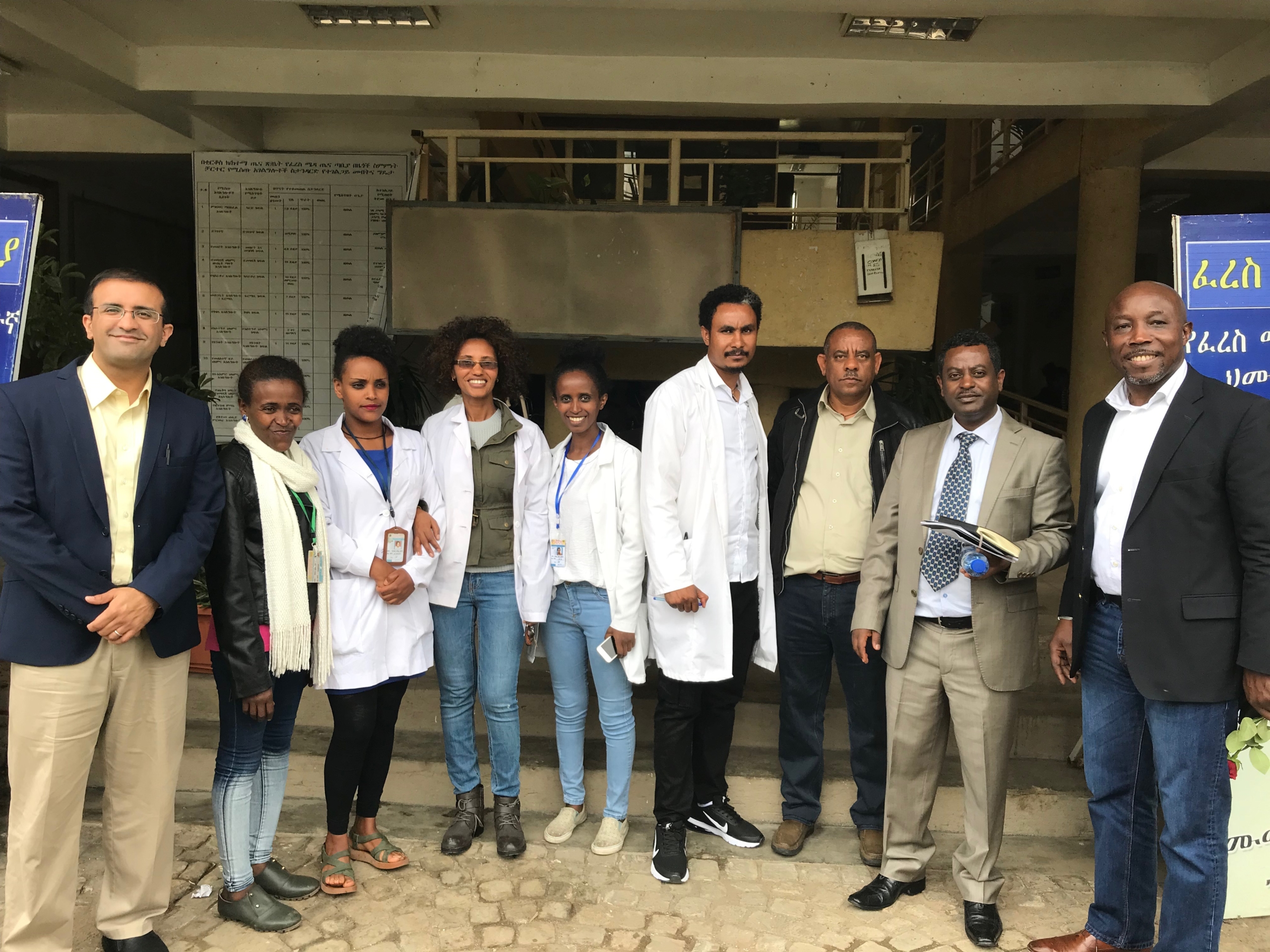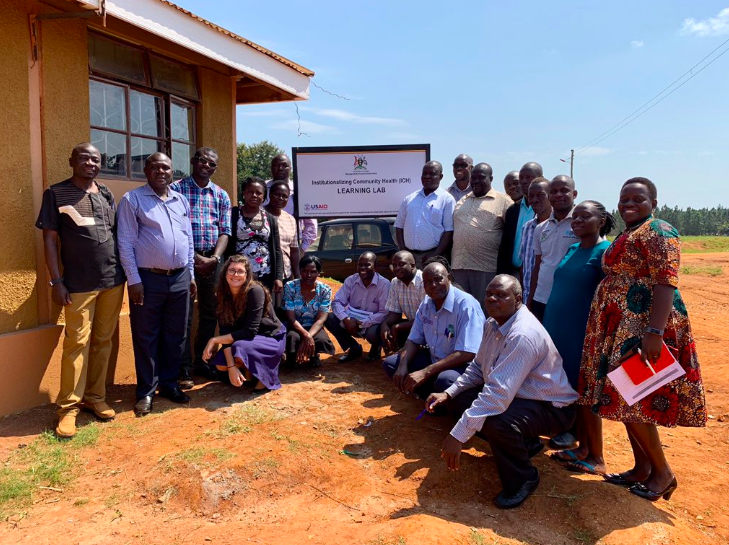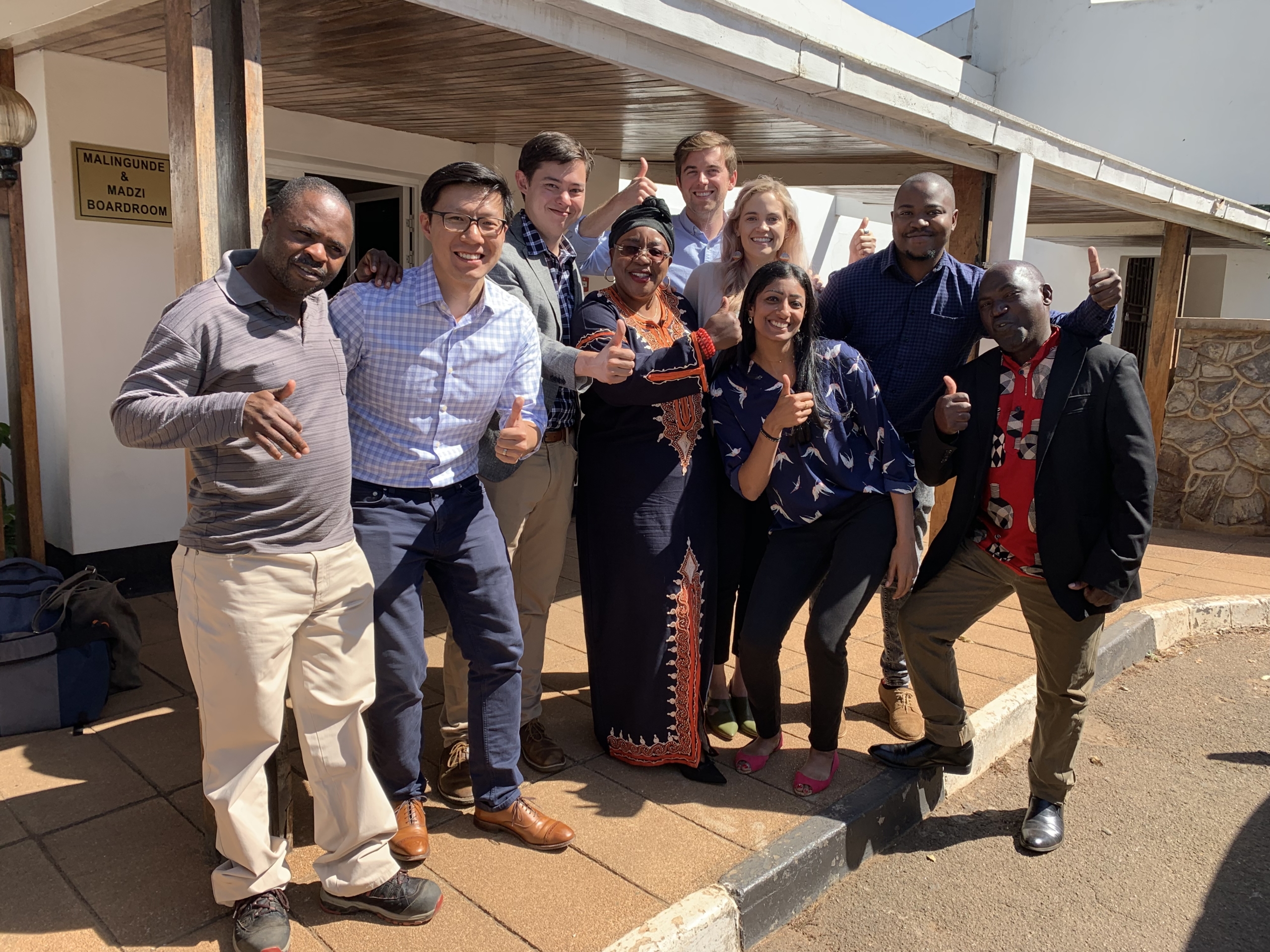Revolutionizing Training for Community Health Workers in Ethiopia
In May, Raj Panjabi, CEO of Last Mile Health, and Magnus Conteh, Executive Director of the Community Health Academy, joined The Elders in Ethiopia to celebrate the country’s commitment to advancing universal health coverage through the national Health Extension Program. This program was featured as a case study (developed in collaboration with the Federal Ministry of Health’s International Institute for Primary Health Care) in the Community Health Academy’s first leadership course, “Strengthening Community Health Worker Programs to Delivery Primary Healthcare.”
In addition, the Community Health Academy is exploring a partnership with the Federal Ministry of Health in Ethiopia to digitize the national curriculum for over 35,000 community health workers. Digital content will be available via mobile devices and, once downloaded, can be viewed offline. The partnership will provide a cost-effective and complementary approach to traditional training for community health workers and will ultimately improve the overall capacity of Ethiopia’s community health system. Ricardo Lagos, member of The Elders and former President of Chile, said, “The Community Health Academy partnership offers a great opportunity to share digital innovations for health workforce capacity building with these grassroots actors and the health systems leaders who support them.”
Further building upon this strong partnership, the Academy has signed a memorandum of understanding with Ethiopia’s International Institute for Primary Health Care to support capacity development for health systems leaders in Ethiopia through support to the Institute’s Leadership Incubation Program. The two organizations will continue to build out the details of this collaboration over the coming months, beginning with a needs assessment to scope the capacity building needs of facilitators and coaches in the Leadership Incubation Program.
New Learning Lab in Mayuge District, Uganda
Through the Bill and Melinda Gates Foundation, USAID, and UNICEF-funded Integrating Community Health Program, Last Mile Health has been working closely with partners in Bangladesh, Mali, Uganda, Haiti, Democratic Republic of Congo, Kenya, and Liberia to support the adoption of community health programs through policy and advocacy. In Uganda, Last Mile Health is partnering with Pathfinder International and the Ministry of Health to create a national learning lab. The learning lab, based in Mayuge District, will test and package best practices on community health worker design and implementation to inform national community health policy and implementation. In addition, Last Mile Health will leverage lessons learned in the implementation of Liberia’s National Community Health Assistant Program when piloting new approaches at the district-level in Uganda, which will ultimately contribute to the strengthening of the country’s community health system.
Building Health Workforce Capacity in Uganda
In Uganda, the Community Health Academy has signed a memorandum of understanding with Makerere University to collaborate in order to complement the Academy’s online leadership courses. This partnership with the renowned East African institution will allow the Community Health Academy to leverage nearly 100 years of academic expertise and excellence in order to build blended learning opportunities with the goal of strengthening local health systems. In addition, this partnership will align with the Community Health Academy’s ongoing work with the Digital REACH Initiative to support health workforce capacity building. The Digital REACH Initiative aims to leverage the use of digital technology to strengthen healthcare quality and access across the East African region.
Finally, Last Mile Health continues to work alongside Living Goods, which is strengthening Uganda’s health system by recruiting, training, supporting and digitally empowering a network of more than 7,000 government community health workers.
Strengthening Malawi’s Community Health Strategy
In Malawi—where 84% of the population resides in rural or remote areas—Last Mile Health is exploring an opportunity to partner with the Ministry of Health to strengthen Malawi’s National Community Health Strategy. Revised in 2016, this strategy outlines the country’s severe health worker shortage and calls for an additional 7,000 community health workers. Significant political will, accompanied by a strong coalition of partners within the community health sector in Malawi, suggests that there is a strategic opportunity for Last Mile Health to use lessons learned in Liberia to support the Ministry of Health to implement quality improvement initiatives, including improving supervision, increasing the frequency and quality of community-based data collection and reporting, and supporting partners to align with an integrated and government-led strategy.
Through this initiative, Last Mile Health has the potential to support a government-led program deploying up to 16,000 community health workers and serving over 15 million people in Malawi by 2023. Last Mile Health is currently finalizing a program proposal with the Ministry of Health, in hopes of launching a formal engagement in the fall of 2019. Last Mile Health is grateful for the support of many partners including Aspen Management Partnership, Clinton Health Access Initiative, D-Tree, Management Sciences for Health, Partners In Health, SEED Global Health, UNICEF, and USAID who have helped to provide consultation and advice for the nascent work in Malawi.








